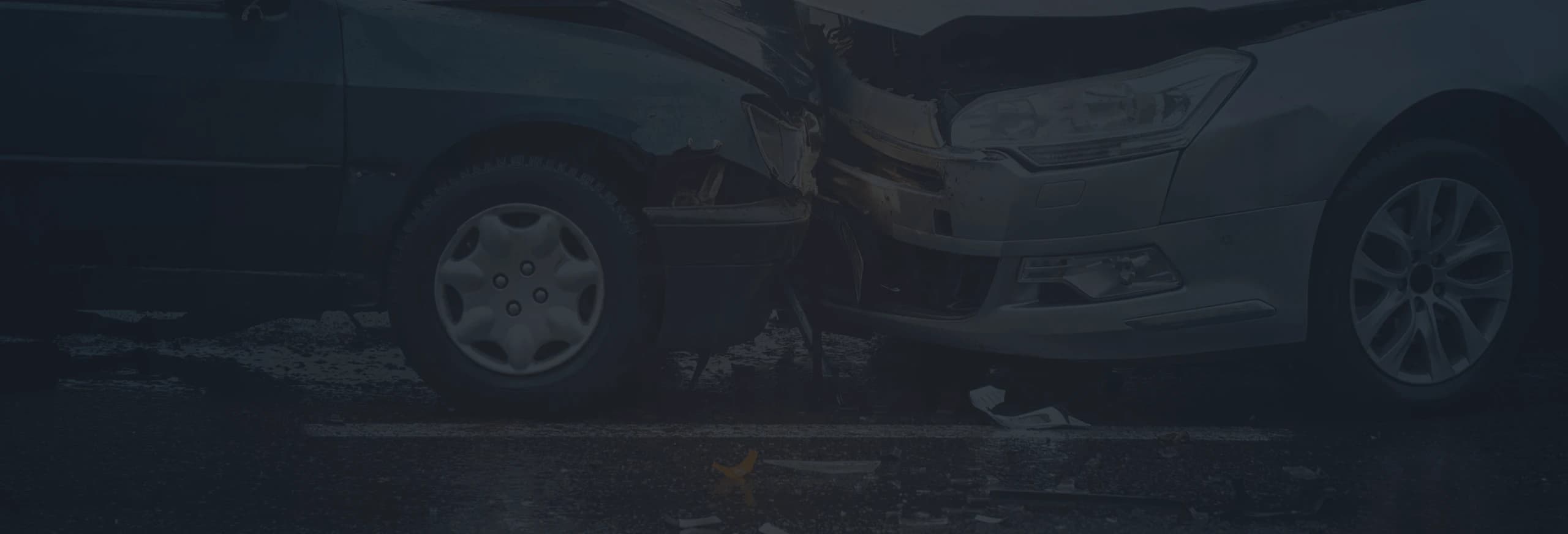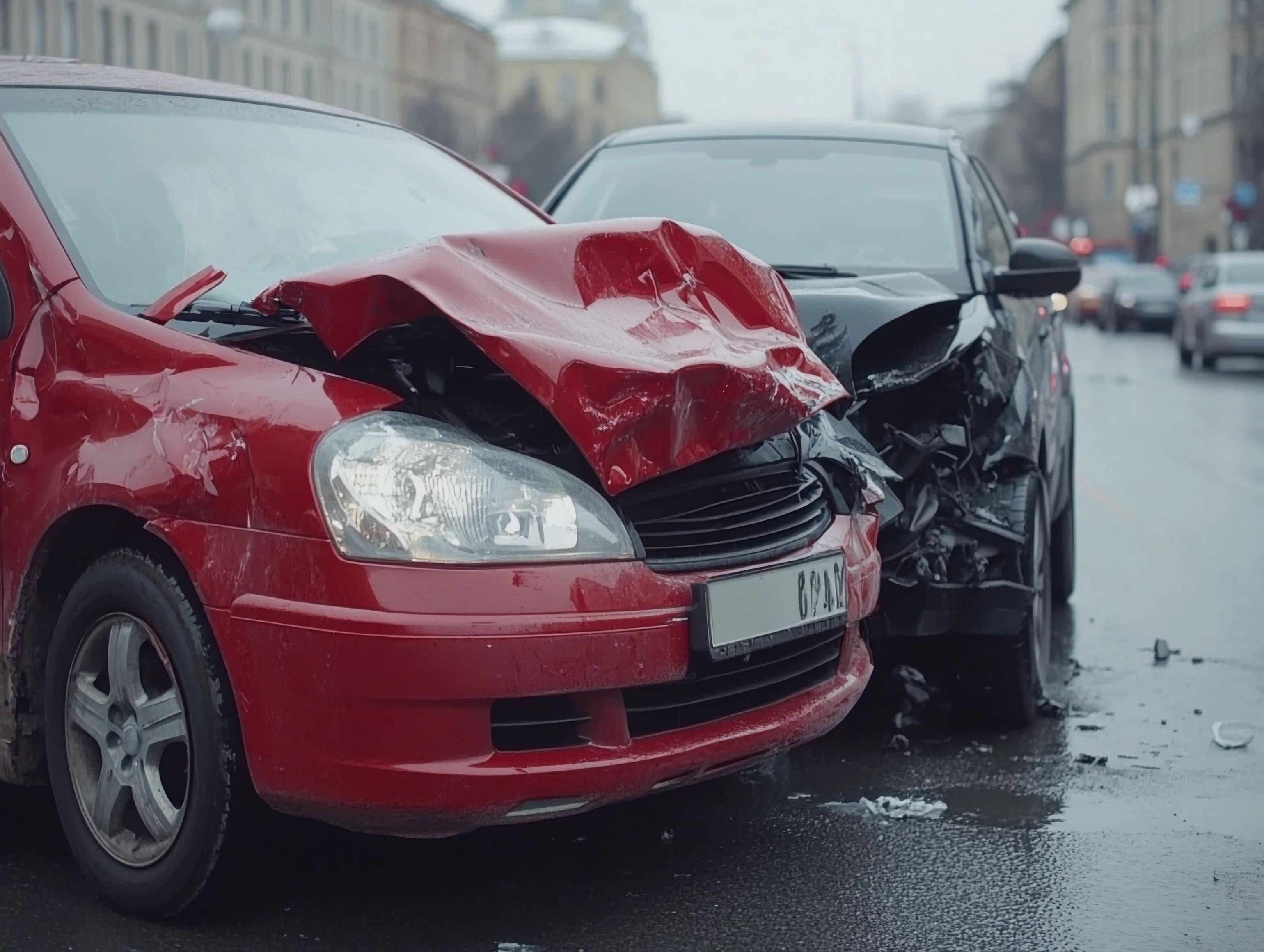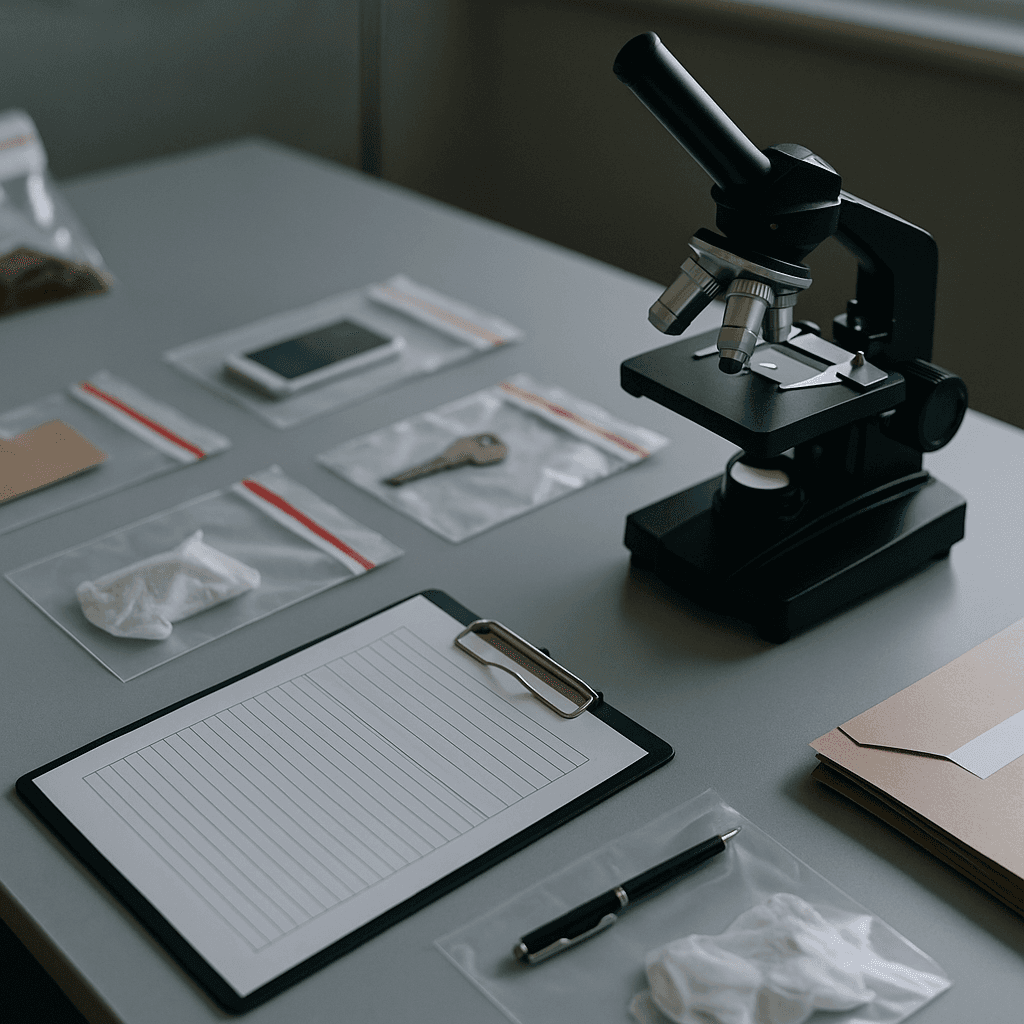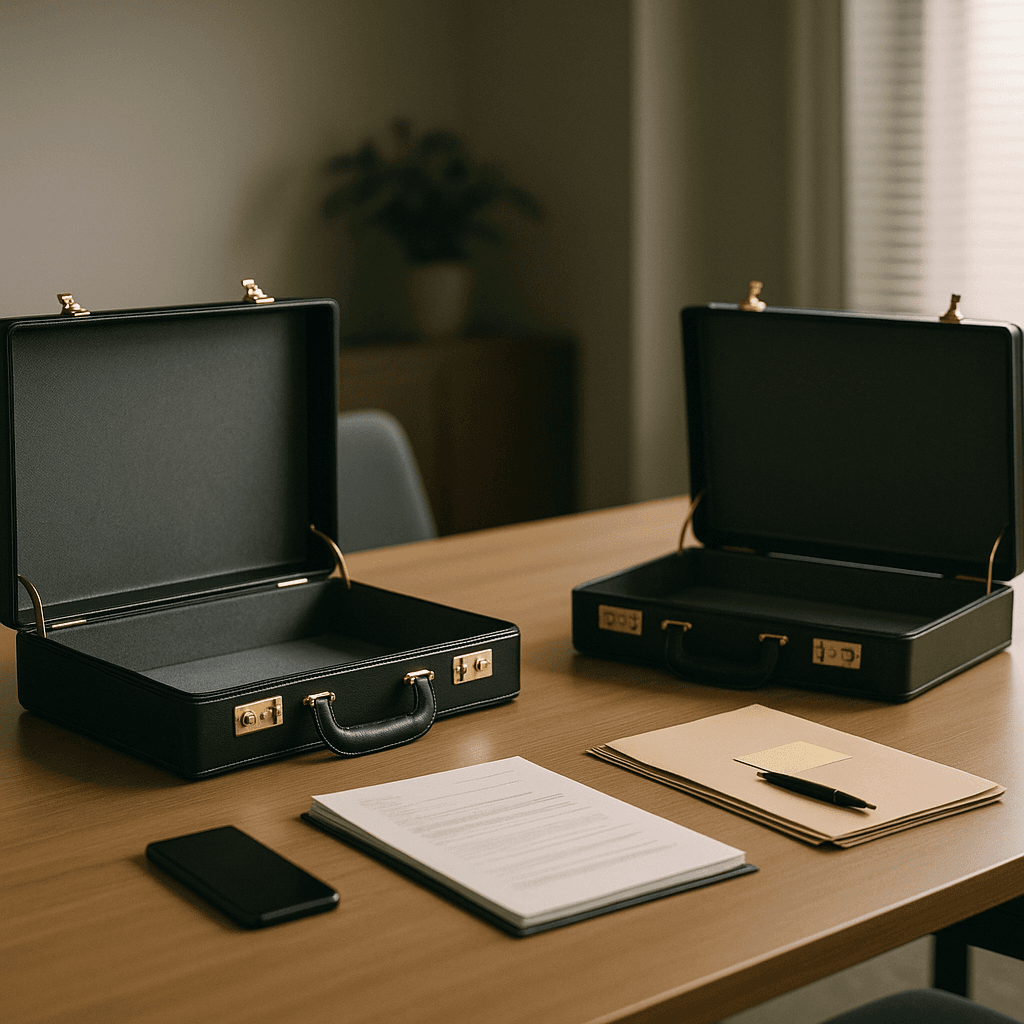
What To Do After a Car Accident: A Step-by-Step Guide

It has happened to almost everyone: you’re headed to the supermarket or home from work when another vehicle collides with yours. Even fender benders can be stressful, but car accidents are even more nerve-wracking if significant property damage or serious injuries occur.
Knowing what steps to take after a collision can help you stay calmer in a stressful situation. Whether you’ve recently been involved in a crash or just want to know what to do, the knowledgeable car accident lawyers at Accident Hotline have prepared this step-by-step guide to protect your health and your rights.
1. Stay on Scene
No matter how minor the accident, don’t just drive away. Stay on the scene long enough to check for injuries and exchange information with the other party. If law enforcement has been called, you should wait for their permission to leave. Fleeing a crash can turn an unfortunate accident into a criminal hit-and-run charge.
Contact our team today so we can fight to help you get the compensation you deserve.
2. Check for Injuries
Your number one priority at the accident scene should be everyone’s safety. Check for injuries on yourself, your passengers, and the occupants of the other vehicle. If anyone is hurt, call 911 right away or ask someone else to call. If you’re not sure whether the situation merits a call, make it anyway. If you are seriously injured, avoid moving until emergency personnel arrive.
3. Move Vehicles
If your car is driveable and you are not badly hurt, move it to a safe spot on the side of the road. This can help prevent further damage and injuries, avoid additional traffic complications, and assist first responders who are on the way. Shut off your car, put it in park, and switch on your flashers. If you happen to have cones or flares, you can use them to alert other drivers to the potential hazards.
Like home renovations, where careful planning is crucial to protect your belongings, moving your vehicle after an accident requires similar foresight. Taking steps to prevent further damage—whether safeguarding your car or figuring out what to do with your furniture during a renovation—can make all the difference in ensuring a smooth recovery.
Free Consultation 24/7, call (844) 343-9609
4. Call Law Enforcement
If you didn’t call 911 to request emergency personnel, call the police to report the accident. In some locations, you are legally obligated to report accidents with injuries or property damage above a certain amount.
Since calculating vehicle damage is nearly impossible on the scene, it’s wise to notify the police regardless. Law enforcement will file a police report and may issue traffic citations to the other driver, which can help you in future insurance claims or car accident lawsuits.
Call (844) 343-9609
5. Exchange Information
Next, exchange contact details and insurance information with the other parties involved. It may be easiest to take a snapshot of their insurance card and driver’s license. If there were any witnesses to the accident, ask for their names and contact information as well. Finally, request the names and badge numbers of any police officers who come to the scene.
6. Collect Potential Evidence
If you are not seriously injured, start collecting evidence at the scene. An important step in evidence collection is gathering the contact information of the other drivers, witnesses, and police officers. You should also take photos, videos, and/or notes about the following:
- The vehicles involved, including the license plate, make, and model
- Vehicle damage from several angles
- Any injuries sustained
- The accident scene, including traffic signals, road conditions, skid marks, crash debris, and any other pertinent information
- The location of nearby cameras, such as surveillance systems or doorbell cameras, that may have recorded the crash
7. Seek Medical Attention
Whether or not you receive medical attention at the scene, seek a doctor’s evaluation as soon as possible after the collision. Some injuries take hours, days, or weeks to appear. Not only is timely medical care important for your health, but it is also key to preserving your rights after a car accident. The longer you wait to seek care, the harder it may be for you to prove your injuries were related to the collision.
8. Make the Proper Notifications
Some states require drivers to file an accident report with the Department of Motor Vehicles (DMV). For example, you may have to report collisions causing injuries or a certain amount of property damage.
Check with your state DMV to see if and when you must file a report. Also, notify your insurance company about the accident regardless of who caused it. Notifying them doesn’t obligate you to file a claim, but failing to provide notice may threaten your coverage.
9. Keep Good Records
From the moment the car accident occurs, keeping good records is important. Hold onto your medical bills, pharmacy receipts, vehicle damage reports, and repair estimates to show your financial losses. If you missed work due to injury, keep your pay stubs and tax returns to show lost income.
Your own personal notes can also be helpful. You may want to jot down details about the collision, your recovery, and anything else that may be helpful.
10. Call a Lawyer
Although you can consult with a car accident lawyer at any point, the sooner you call, the better. An experienced attorney can guide you through the insurance process, advise you of your rights, protect your interests, and help you file a car accident lawsuit if you don’t reach a satisfactory solution with the insurance company.
Whatever you do, don’t speak with the other party’s insurer or sign any insurance documents without consulting with an attorney first.
11. Watch What You Say
One final note to remember: watch what you say. Whether you are talking to the other driver at the accident scene or the insurance company afterward, avoid admitting fault, raising unfounded accusations, or making emotional statements. This can all be used against you later.
Find a Car Accident Attorney in Your Area Today!
The time after an accident can be upsetting, but it’s important to move quickly to protect your rights. At Accident Hotline, we help accident victims connect with qualified legal help in minutes — not hours or days.
If you’ve been hurt in a crash and would like to learn more about car accident terms explained, check out our glossary. If you’d like to speak with an experienced car accident attorney in your area right away, call (844) 343-9609 for a free consultation anytime day or night.
For a free consultation, call (844) 343-9609
Blog Posts:

The Role of Expert Witnesses in Injury Litigation
Why Expert Witnesses Matter in Personal Injury Cases In personal injury litigation, facts alone are often not enough. While evidence like medical records, photographs, and witness statements paint part of the picture, juries and insurance companies frequently need context and explanation to understand the full scope of an injury and its impact. This is where expert witnesses play a pivotal role. Expert witnesses are professionals—often doctors, engineers, economists, or accident reconstruction specialists—who provide testimony based on their specialized knowledge. Their objective is not to advocate for one side but to clarify complex issues that require professional interpretation. In many cases, their opinions help bridge the gap between evidence and understanding, making them critical to achieving fair compensation.

How Insurance Companies Evaluate Injury Claims
How the Evaluation Process Really Works When you file a personal injury claim, the insurance company begins a process that is anything but simple. Behind every offer or denial, there's a calculated evaluation designed to protect their bottom line. Insurers use data-driven methods, past claim outcomes, and internal guidelines to assess how much—if anything—they believe your case is worth. The goal of the insurance adjuster is straightforward: to settle your claim for as little as possible while closing the file quickly. They'll review your medical records, accident details, and even statements you've made to determine liability and damages. The more organized and detailed your claim presentation, the harder it is for them to undervalue it.

The Dangers of Handling a Personal Injury Case Without Legal Help
Understanding What's at Stake After an accident, it's natural to want to resolve things quickly. Medical bills begin piling up, your work may be disrupted, and insurance adjusters often seem eager to "help." Many people believe they can handle their personal injury claim on their own—especially if the situation seems straightforward. But personal injury law is complex, and even minor missteps can lead to significant financial loss. Without professional guidance, you may underestimate your claim's value, miss critical deadlines, or make statements that insurers later use against you. The legal process is designed to protect both sides, and insurance companies have experienced professionals working to limit payouts. Without an equally skilled advocate on your side, you're at a clear disadvantage. That's why consulting a personal injury lawyer early in the process is often the difference between fair compensation and a costly mistake.

When Should You Switch to a Different Injury Lawyer?
Knowing When It's Time for a Change Choosing the right attorney after an accident is one of the most important decisions you'll make in your recovery journey. However, not every lawyer-client relationship is a perfect fit. Sometimes, despite your best efforts, you may realize that your current representation isn't meeting your expectations. Whether it's poor communication, lack of progress, or a sense that your case isn't being handled effectively, recognizing when to switch attorneys can make all the difference in the outcome of your claim. Switching to a new personal injury lawyer doesn't mean starting over from scratch—it means taking control of your case and ensuring it receives the attention and effort it deserves. Understanding what to expect from your legal representation can help you identify the warning signs that it might be time for a change.
Get an agent on the line in seconds
Responsive
Legal Assistance
Our personal injury attorneys advocate for the funds necessary to cover bills, secure medical treatment, recoup lost wages, and provide compensation for your pain and suffering.
Are you facing unfair treatment from the insurance company?
Do you know the value of your case?
Is the insurance company asserting that the accident is your responsibility?

We'll get back to you ASAP.
Get Your Free Consultation
You Pay Nothing Unless We Recover Compensation For You
